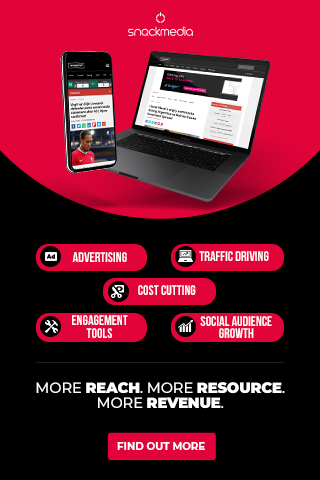Sports sponsorship is alive and well…if only you know where to look
Lately, it appears that the dreaded ‘S’ word has started to lose its negative connotations in the aftermath of one of our worst economic crises in recent times. Yes, sponsorship is slowly beginning to reassert its authority in the marketing mix and with just cause.
The recent announcement that consumer giants Procter and Gamble has signed up to become the 11th global sponsor of the London 2012 Olympic Games will be a huge morale boost to those involved in international sports sponsorship. P+G, as you would expect from such a world renowned firm, are in good company on the 2012 list, which also boasts tech giants Panasonic, Acer, Atos Origin and Samsung. And it is not only global corporate who are being encouraged to sign up. As the BBC reports, small and medium sized firms are also lining up to get a piece of the Olympic dream in 2012.
The International Olympics Committee has confirmed that close to $900m has been accumulated in sponsorship revenue and it is hoping to top $1bn. And they say that sports sponsorship is suffering…
With just over 700 days until the start of the 2012 Olympics, it is worth recognising the plethora of opportunities that exist for brands wanting to gain true global recognition through a sports association. Whether it is the four yearly bonanzas like the Olympics and the World Cup, the truly international annual motorsport championships like Formula One or MotoGP, or more regional events or series, the perfect sports opportunity is there for the taking, if only you know where to look.
An article on PR Week a few weeks ago looked at the results of a recent Echo Research poll (of 1,002 adults in the UK) which found a surprisingly low awareness rate of brands sponsoring this year’s World Cup in South Africa. Coca-Cola and McDonalds, both sponsors of London 2012, garnered the highest recognition but less than 50% in both cases. Interestingly, Nike was identified by 20% of people even though they were not actually sponsor.
It is hardly surprising to see a name like Nike on the list, just as we may well see Coca-Cola on a similar poll in modern day Formula 1. This unintentional or intentional ambush of rival brands on high level sporting events is to be expected and brands should build that into their own activation programmes to minimise the impact. Activation is more critical for less visible sponsors as they seek not only to gain a bigger piece of the sponsorship pie for any event, but also to fend off their own rivals attempts at hijacking coverage.
The low recall rates themselves have nothing to do with the value of sponsorship as a marketing tool, but perhaps more to do with the audiences that were targeted or the ways in which the sponsorship was activated.
Before we start writing off sports sponsorship because recall rates in this particular research are low, let’s remember that McDonalds may only have used the World Cup to target 20% of the UK audience and with that achieved their sponsorship objectives. Success from sports sponsorship is a very individual analysis and cannot be assessed by sweeping judgements based on a small cross-section of society. As long as brands like McDonalds continue to plough substantial finances into sponsorship of sporting events, one must assume they are deriving the necessary return on that investment.
The same must be said for technology brands whose primary objectives in a sports involvement may be less to do with outright branding and more to do with technological showcase of their product in a sporting environment. We have worked with a number of tech brands for whom this last point is the single most important aspect of their marketing strategy and in these instances the returns from a sporting involvement far outweigh the impact of their corporate logo in a stadium, on a shirt, on a car or on a website.
Sponsorship is not a one case fits all marketing tool. It is bespoke, adaptable and tailored to each company’s own strategy and unique brand attributes. To say that sponsorship is not successful on the basis of a small non-targeted questionnaire is short sighted and completely misses the point.
About author
You might also like
SPORTEL 2021: Day One Recap
This year’s prestigious SPORTEL convention kicked off in sunny Monaco today, welcoming a host of familiar faces as well as plenty of new ones. Doors opened at 8:30am with businesses
Six Founding Riders Set To Bring The Vision Of The UCI Track Champions League To Life
Olympic Champions, UCI World Champions and World Record holders join the new track cycling competition debuting in November 2021 The UCI Track Champions League is delighted to announce that six
Sports related spending to soar this summer as pre-pandemic life resumes
New insights from eBay Ads UK reveal the potential for brands to engage with an excited but nervous nation as sports events get back on track As pubs and indoor








